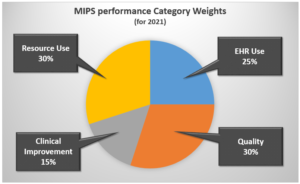
MACRA
CRITICAL EDUCATION OVERVIEW
 The Centers for Medicare and Medicaid Services (CMS) announced major changes to the implementation of the Medicare Access and CHIP Reauthorization (MACRA).
The Centers for Medicare and Medicaid Services (CMS) announced major changes to the implementation of the Medicare Access and CHIP Reauthorization (MACRA).
Acting Administrator Andy Slavitt outlined how physicians can choose to participate at their own pace in the new quality program and avoid any penalties in the first year of implementation. The blog can be found online here.
Rather than require physicians to participate fully in either the Merit-Based Incentive Payment System (MIPS) or an alternative payment model (APM) in 2017, CMS has outlined four options for the MACRA reporting period, choosing any of these options will ensure that practices are not subject to a penalty in 2019. The four options are as follows:
-
Test the Quality Payment Program by submitting some data after January 1, 2017. This will be sufficient to avoid any penalty in 2019;
-
Participate for part of the 2017 calendar year;
-
Participate for the full 2017 calendar year; or
-
Participate in an advanced APM.
Under options 2 and 3, practices could quality for a bonus payable in 2019; the size of the potential bonus would vary based on the level of participation. Advanced APMs will receive the 5 percent bonus authorized by the statute.
This announcement was made in response to comments the agency received on the proposed rule, requesting a delay in implementation. These changes will provide flexibility and a longer transition period for those practices that need more time to prepare for MACRA’s requirements without being at risk of a penalties.
It is important to note that those practices who do not submit any quality data will still be penalized in 2019. More details on this change in implementation will be detailed in the final rule which is expected this month.
EDUCATION
December 6-8, 2018
Sheraton Atlanta Downtown, Atlanta, GA
2018 Advanced Course in Allergy & Immunology
The AAOA CME program centers around clinical issues related to the care of allergy/immunology and inflammatory diseases of the airways and systems related to the head and neck.
The Advanced Course focuses on:
- Immunology and efficacy of Immunotherapy (SCIT and SLIT)
- Diagnosis and management of food allergy
- Diagnosing and managing the pediatric patient
- Advanced topics (aspirin-exacerbated respiratory disease, medication allergy, local allergy, stinging insect, skin allergy, oral, ophthalmic, and otologic manifestations)
- Asthma diagnosis and management, including pulmonary function testing
- Learning the latest on Otologic topics and how it relates to allergy,
including diagnosis of dizziness, the latest update on Meniere’s
disease, migraine associated vertigo, and more! - Addendum guidelines for the prevention of peanut allergy in the US
MACRA AND MIPS UPDATE
The AMA continues to hear from physicians who feel unprepared to participate successfully in Medicare’s new Merit-based Incentive Payment System, despite the transitional flexibility provided for 2017. In particular, it seems that physicians who never participated in Medicare reporting programs before need basic information on how to avoid a payment penalty in 2019 through minimal reporting in 2017. Read More




